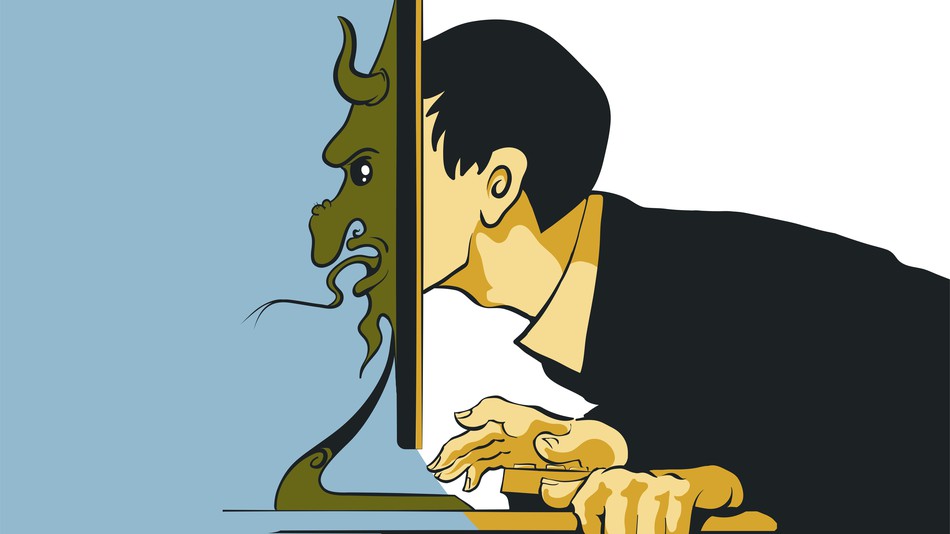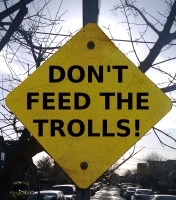A generation of Trolls

Social media, it is often said, has been able to bring democracy to our living room. Thanks to such outstanding public platforms as Twitter and Facebook, we can now deliberate and opinionate about all topics ranging from Mangalyaan to Narendra Modi’s fashion faux pas at the click of a computer button. Even the biggest optimist couldn’t have foreseen this decentralization of democracy just a couple of decades back. However, cyber pundits haven’t really thrown much light to a rather enigmatic and negative side effect of social media. Trolling, as it is famously or infamously known, has been increasing at the pace of knots over the past half a decade. Some apparently educated yet behaviourally primitive netizens have been leaving behind a trail of vitriol and venom across the universal platform. Even the most innocuous tweet, post or comment is being attacked on flimsy ground by a group of people who are harnessing the anonymity factor on the virtual medium to their advantage.
The act of slander has taken a new dimension through trolling. Although, the proponents of unrestricted democracy would vouch for a status-quo, it is actually in everybody’s interests that a set of stringent guidelines are prepared for the virtual medium. While trolling has a significantly disruptive effect on the psyche of the victim, it leaves a bad taste in the mouth of a neutral observer as well.

While the current Prime Minister of the country might be all too enthusiastic about the universalization of the internet, it needs to be remembered that a majority of the country’s population has not yet been conditioned to the many dimensions of the medium. Consequently, abuses and misuses have been rampant. While trolling as a distinct social trend is being witnessed throughout the globe, it is indeed saddening that the act has acquired a more vicious dimension in India. Although Facebook, Twitter and the blogging platforms are replete with a sickening number of trolling acts, news websites are not being spared either. Political write-ups and opinion pieces are being countered using personal abuses against the concerned writers. Renowned intellectuals and thinkers such as Amartya Sen and Ramachandra Guha haven’t also been spared by the trolling geeks. Women are being threatened with rapes; men are being christened as eunuchs – the extent and intensity of the trolling act is as ironical as devastating. An ideal case in point could be the day when the results to the Bihar Elections, held in 2015, were declared. Trolls had a field day and Biharis were equated with Pakistanis for voting in the Mega Alliance. While, it is perfectly acceptable to have an opposing opinion, it is not at all ok to resort to personal attacks and filthy abuses to defend that opinion.

The concern here stems from the fact that almost all these internet trolls have some sort of education and almost all of them have a clear idea of the basic constitutional provisions in our country. Another stinking point here is that the women netizens don’t lag behind much when it comes to trolling. While a psychological study is required to find out why the trolls behave the way they do, their acts are not as harmless as some people would like to believe. It kills someone’s good work, it belittles contributions and above all it demoralizes and upsets genuine citizens. Trolling actually signifies a severe shortage of collective conscience and empathy. It also represents a disdain for everything that conforms to the idea of propriety and social order. While rebellion by itself doesn’t necessarily have to be evil, there is something intrinsically wrong when the rebellion thrives in somebody else’s humiliation and suffering.
- S.B